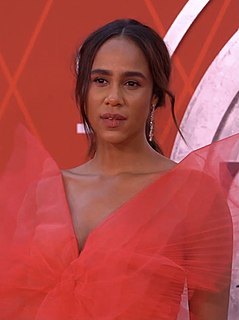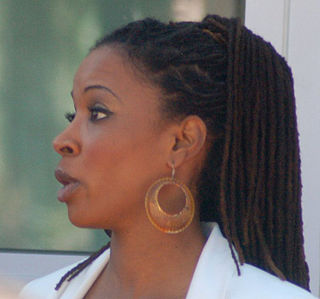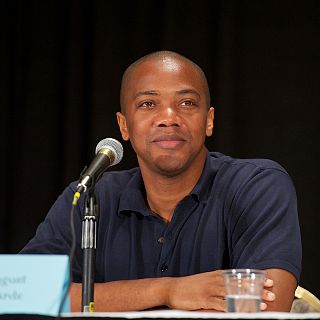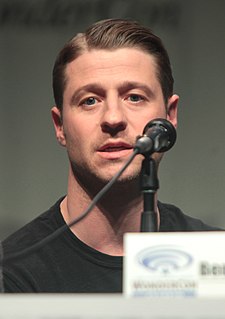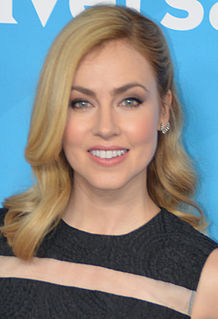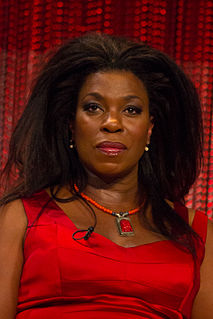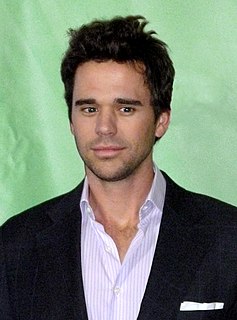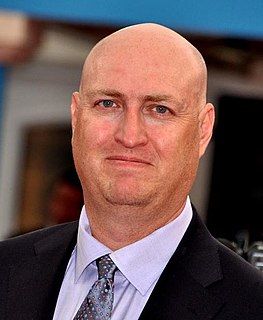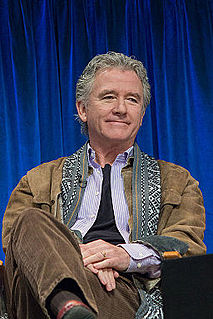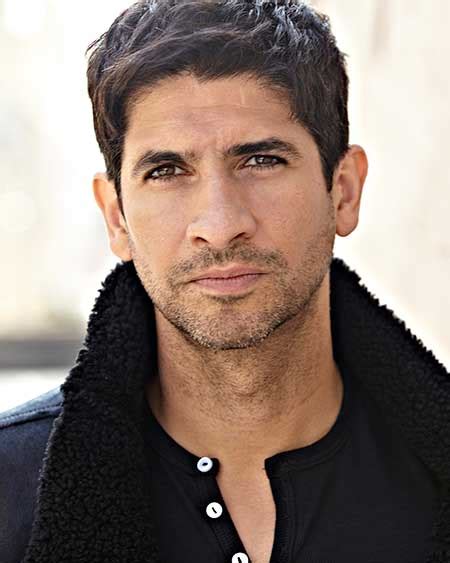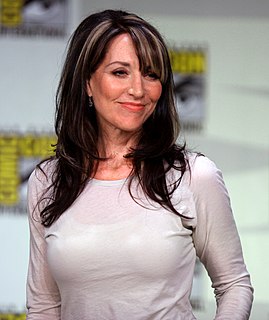A Quote by Carrie Coon
There's this thing in TV that I find hysterical where the writers and creators will ask us if you want to know what happens to your character or if you want to experience it episode by episode. In the theatre, we always know the ending; we always know where the character is going.
Related Quotes
As an actor, you don't want to ever get too comfortable where you're like, "I know this character," and you don't do the work anymore. Then, there's something that you're going to miss. If you always stay hungry to learn more about your character, that's a healthy thing, while having a great sense of who she is, at the core.
It's really wonderful to come to work and have each episode be different, in a way. They have similar structure sometimes with the villain, but we can go in any direction we want. If we want to do an episode set in the circus, we can do that. You know how precious that is. That doesn't come around a lot.
We do want the freedom to move scenes from episode to episode to episode. And we do want the freedom to move writing from episode to episode to episode, because as it starts to come in and as you start to look at it as a five-hour movie just like you would in a two-hour movie, move a scene from the first 30 minutes to maybe 50 minutes in. In a streaming series, you would now be in a different episode. It's so complicated, and we're so still using the rules that were built for episodic television that we're really trying to figure it out.
You never know where your next job is going to lead you, down the road. One single episode that might seem so far removed from what you might end up doing in the future might spark somebody's memory bank. Just one little line you said or a look you gave might be what they want to pursue with a character.
I was talking to Shonda Rhimes the other day and I said, "I. Do. Not. Know. How. You. Do. This." While we're writing episode 10, episode 6 is shooting, episode 3 is in the edit, and episode 2 is in its color session...You've got seven episodes in different parts! It's a wild, wild, wild ride, which I thoroughly enjoyed. It was badass and amazing.
There are story-room sessions where you think about the big picture, like a novel, but once you have certain things in place, you have to treat each episode like an hour of TV, and think that maybe this will be the only episode that anyone will ever watch. You want to have some sort of beginning, middle, and end to the episode, even if you have storylines that are carrying over. You still want it to feel like a cohesive hour of entertainment. And you can't think about both at the same time.
The last episode of Dallas was in '1991.' Unfortunately, it was a terrible episode to end the show on: it was a sort of 'It's a Wonderful Life' with Larry as the Jimmy Stewart character. In that episode, I was an ineffectual-schlep kind of brother, who got divorced three or four times and was a Las Vegas reject.
I always had a struggle, which I still do, when you're playing a character and it's not necessarily your morals or your values. You're playing a character, but the way the media will sometimes ask you if these are your opinions, you know - they make you responsible for that, and I take issue with it because I don't believe in censorship.


